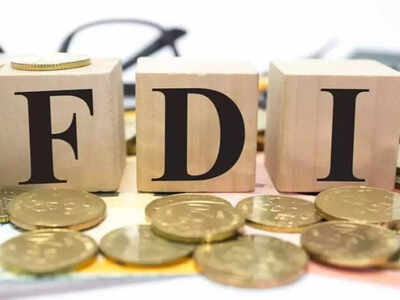United Nations secretary-general Antonio Guterres on Thursday expressed concern over the declining state of globalisation, warning that foreign direct investment (FDI) continues to shrink amid worsening global economic conditions. His remarks came as the UN released fresh data highlighting a negative outlook for international investment flows.In its 2025 World Investment Report, the UN Conference on Trade and Development (UNCTAD) revealed that global FDI dropped by 11 per cent last year, once adjusted for volatile financial flows through several European economies, falling to $1.5 trillion. The downturn follows two consecutive years of decline and is expected to continue into 2025, driven by ongoing geopolitical tensions and tariff disputes.“At a time when the world should be deepening cooperation and expanding opportunity, we are seeing the opposite,” Guterres said.“Barriers are rising. Globalisation is retreating. And the consequences for sustainable development are profound. Rising trade tensions, policy uncertainty and geopolitical divisions risk making the investment environment even worse.,” he further added.UNCTAD attributed the global slide to a 22 per cent fall in FDI to developed economies, with Europe taking the hardest hit, recording a staggering 58 per cent decline. The United States, however, saw a 23 per cent increase, helping North America stand out as an exception.In contrast, FDI inflows to developing countries remained relatively stable, though the broader investment outlook remains fragile.Presenting the findings at a press conference, UNCTAD secretary-general Rebeca Grynspan called the situation “clear and urgent,” warning that global investment remains “weak” and the prospects for this year are “negative.”“The investment landscape in 2024 was shaped by international tensions, trade fragmentation, and intensifying industrial policy competition,” she said. These factors are “eroding long-term investor confidence.”Although trade showed early signs of recovery in 2023 after the pandemic years, Grynspan said that renewed uncertainty—particularly stemming from the renewed trade war initiated by former US President Donald Trump in April—has “killed that possibility for 2025.”“The problem that we have is that we don’t see an end,” she added.The findings come at a time when global economic cooperation appears increasingly strained, with the ripple effects of protectionist policies threatening to undermine progress toward sustainable development goals.
Trending
- Defence outperforms sectoral indices; surges 34.82% in six months, far ahead of Nifty – is the rally sustainable?
- US stock market today: Wall street edge up & yields spike; S&P 500 hits fresh record after job data
- US labour market data: Jobless claims drop to 233,000 as layoffs stay low; total unemployment rolls hold near 2 million
- Sugar sector milestone: Industry hits Rs 1.3 lakh crore mark; Union minister Pralhad Joshi says growth fuels rural prosperity & energy security
- India-US trade deal: What’s the deadlock about? Top issues blocking agreement as Donald Trump’s 26% tariff deadline looms
- ITR filing: Why are ITR-2 and ITR-3 forms still not available on Income Tax e-filing portal? Top reasons explained
- Startup IPO rush: Rs 18,000 crore worth of fresh issues lined up; Meesho, PhysicsWallah among top raisers
- New Reliance Consumer Products Ltd: Mukesh Ambani-led RIL to group all its FMCG brands under new company; IPO plans in works
- Sharp contrast! How Swiggy & Eternal, India’s top e-commerce stocks, are outshining Chinese counterparts – explained
- RBI lending directive: No more pre-payment charges; borrowers to get freedom from 2026 | India Business News

